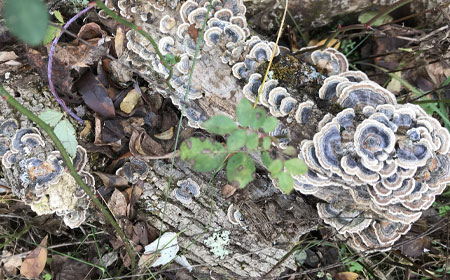Health Benefits of Forest Bathing
For millennia, poets and philosophers have celebrated the healing powers of nature and now, physicians and scientists are documenting its ability to reduce stress and promote wellbeing.
A number of research studies affirm the positive effects of engaging with nature. Documented health impacts of forest therapy include:
- Improved attention, memory and cognitive function
- Enhanced self-awareness and relationships
- Improved metal state and mood
- Improved immune function
- Reduced stress and anxiety
- Decreased blood pressure
- Improved sleep
“Homo sapiens is the only species to suffer psychological exile.”
—E. O. Wilson

The human nervous system is made up of the sympathetic system, commonly referred to as fight or flight, and the parasympathetic system, known as the rest and recovery part. The pressure, noise and activity of modern life keeps the sympathetic system engaged so often that the parasympathetic system has little time to bring our bodies back into equilibrium.
The result is excess stress, a condition which contributes to high blood pressure, heart problems, diabetes, headaches, asthma, arthritis and other common ailments.
As Yoshifumi Miyasaki explained, the basic concept of forest immersion is that exposing humans who are in a stressed state to the restorative effect of nature produces physiological relaxation and improved immune function that helps prevent illness.
Conversely, Dr. Qing Li points out, our health suffers when we are disconnected from nature. Dr. Li’s seminal research documented changes in cortisol and adrenaline hormones associated with stress before and after time spent in the forest. Additional studies reveal that working in environments with plants improves mental agility and recovering in a hospital room with a window can reduce hospital stays. (Ulrich, 1984)
While work continues to uncover health impacts, many studies focus on the biological and chemical processes at work. Trees and plants emit phytoncides, volatile organic compounds that help fend off harmful bugs, bacteria and disease.
When humans “bathe” in a forest full of phytoncides, it reduces blood pressure and promotes the production of special white blood cells that combat cancer. (Komori et al, 1995) Microorganisms in the soil boost immune functioning (Lowry et al., 2007) and the high concentrations of negative air ions in forests and by moving water reduce depression. (Goel et al., 2005)
These and other important studies verify what many of us feel instinctively – spending time in the forest is good for us.


